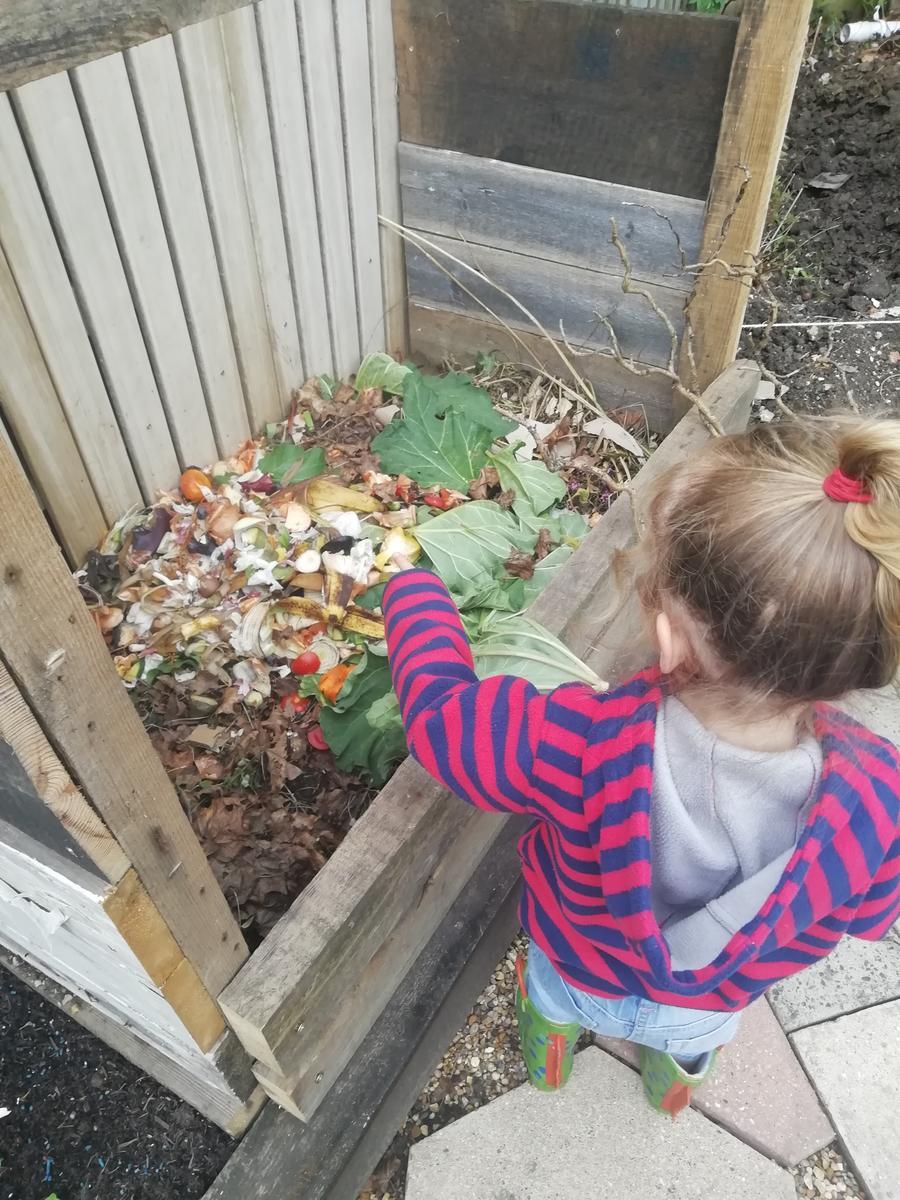Composting the way nature intended
In today's society, some food and garden waste is inevitable, and while banana skins are not likely to feature on any menu, and hedge clippings won't win you any garden prizes, they do have more potential than you realise.
When you recycle your garden waste, they are turned into compost to help new crops and gardens grow, contributing to the circular economy. If you do this yourself at home, this is called home composting. There is no better time to get involved than during International Compost Awareness Week. There is no need to visit a household waste and recycling centre, and you can use the compost produced in your own garden!
What is composting?
Composting is the natural process of decomposition that turns organic materials like garden waste and vegetable food scraps into a dark, crumbly and earthy material called compost. Compost is rich in nutrients and is great for horticulture, organic farming and your garden.
More than 30% of the average household’s waste can be composted; including items like eggshells, egg boxes, hair, coffee granules, tea bags, rotten fruit, vegetable scraps, and shredded paper.
How can residents get involved?
Veolia collects green waste (if you have opted in) from your kerbside and processes it through its nationwide composting sites, processing the organic material into a sustainable, peat-free, nutrient rich product for gardeners and farmers alike. You can even buy it from us as ProGrow.
Here is what happens:
If you have chosen not to receive a collection of your garden waste from us, you can still get involved!
Composting can be done in even the smallest of gardens, but if you have no garden at all, you could try a wormery. Wormeries are easy and fun to use: simply add your food waste and after a few months the worms will have eaten it all. What is left behind is a fantastic fertiliser and a nutrient-rich liquid which can be diluted for use as plant food. Find out more information about how to start up your own compost bin (and keep it working!) here: www.recyclenow.com/reduce-waste/composting
Top tips!

1. Drinking lots of coffee at home right now? Add the grounds onto your heap: the worms love them!
2. Have you got lots of cardboard from having things delivered to your house? Brown cardboard is great to add carbon to your pile which it needs for quick decomposition. Just rip it into smaller pieces and take the sticky tape off.
3. Can't get to the gym to lift weights? Regularly turning your heap adds oxygen which helps speed up decomposition: get that pitch-fork out and pump those muscles!
4. Staying at home means we might be hoping the weather will be kind: but no rain means your heap might get too dry. Water your heap once a week to keep the pile active. But if it starts to smell, then you are watering too often.
5. If your garden is looking immaculate and you think compost bins are ugly, why not try fixing some chicken wire around it and planting climbing plants to grow up it.
6. If you are running out of ideas to homeschool the children, then home composting provides a great learning experience. From finding the right things to put into it, to making sure the balance of green and brown feed stuff is right. When you are turning your heap, don't forget to look out for bugs that are working in your heap - you can work together with your family to identify them.
Go Peat-Free
When purchasing compost, whether that be for your garden, a community project or even for your house plants, there is one important thing to remember. Go peat-free!
Many shop-bought composts contain 70-100% peat. However, peat, the accumulation of partially decayed vegetation or organic matter, is a critical carbon store and a natural ally in the battle against climate change. Acres of UK peat bogs have been drained and destroyed in recent decades.
Using peat-free products in the home and garden is one of the simplest, yet most effective ways that you can make a positive environmental impact and reduce your carbon footprint. To buy your peat free soil improver, visit our dedicated website: ProGrow


